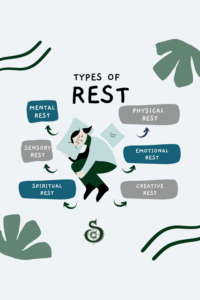Ways To Parent Your Child Through Mental Illness
You are reading this if you are a parent to a child that is experiencing mental health challenges. Your child may be currently working with a counselor, taking medication, or experiencing an internal struggle. You are reading this because you want to learn how to show up for your child.
I want to share with you a few ways to show up and support your child through mental illness.
1. Building A Team Approach When Parenting
Teamwork makes the dream work. Create a team-based approach to parenting with your partner. Or co-parenting.
This means that the two of you must take time to evaluate rewards, consequences, communication style, and all areas pertaining to parenting. The purpose of evaluating your parenting style is to help the two of you come together to one solid mutually agreed upon parenting style.
Doing this goes a long way in helping your child grow. Consider the education system. Your child goes to school and on average has a setting that provides them with one approach. Your child knows that they are to raise their hand in each of their classes.
The goal is to create this system at home.
Building teamwork as parents can directly support your child through mental illness.
Parents can learn the triggers that connect to the mental illness as well as coping skills that can support the child. When kids are aware that their parents are invested in their mental health, their tends to be a positive impact. The positive impact is seen because your child feels that you are involved and invested.
Consider exploring the following areas and questions together to support your child with mental illness:
- How can I be here for you?
- Are there any activities that we can do together to help with mental illness?
- Are there things that I am doing that you feel are not helping with mental illness?
- Consider working with a counselor to gain education on the mental illness your child is experiencing. Click here to start counseling today.
2. Exploring Your Parenting Style
With respect to the parenting style. Focus on a parenting style that helps your child and their individuality.
The parenting style is not meant solely for you. For instance, I may want to parent my child to be extremely organized and structured because I was parented in that manner and found success from it.
It’s important for me as a parent to understand my child’s individuality, personality, and the ideal parenting style that fits his/her foundation, not mine.
This concept is often challenging for parents due to the influence of personal experiences. I personally found myself at times parenting my kids in ways that connected to what I was missing.
Exploring your parenting style can give you the opportunity to build awareness in identifying if you are connecting with your child. At times, our kids are one of the best teachers. Try to ask your child, “do you think that I am a good parent?” Such a question can be grounding and pivotal.
Overall, take time to reflect prior to action.
 3. Teach Your Child How To Reframe Thoughts
3. Teach Your Child How To Reframe Thoughts
Below are examples of negative thought and how the thought can be reframed in a healthy way. This exercise is one that you can teach your child and even model.
Negative thought:
“Today is going to be difficult, I know there is no way I’m going to make it.”
Positive thought:
“Today, like other days will have moments that will be challenging. I feel confident because I have survived days just like this one.
Negative thought:
“I can’t stand when people don’t include me. It makes me feel stupid.”
Positive thought:
“Others not including me is about them versus me. I believe in myself and love who I am. People that value me will include me.”
4. Help Your Child Learn Their Triggers
Everyone to some degree has a list of triggers that provoke a reaction. For instance, a funny movie provokes the reaction of laughter. The trigger in this case is the funny movie.
To support your child, take time to identify what their triggers are that lead to unwanted symptoms or behavioral reactions. You may notice that some connect to being yelled at while others are not wanting to be ignored.
The exercise below is one that you can teach your child and work alongside them. This way they can mirror your leadership.
Trigger:
Being accused of something
Coping Skill:
Deep breathing exercise
 5. Approach Your Child From A Place Of Love
5. Approach Your Child From A Place Of Love
Love your child first and parent second.
When I was little, my mom, got really into Pokémon with me and my siblings. She would buy me Pokémon cards and pretty much made me feel that she was interested in them.
As an adult, I can understand that she more than likely at the time did not give a hoot about Pokémon cards. Or Pikachu.
She had more important things to do than battle Pokémon. Yet, she loved first. She gave me time and provided unconditional love.
When parents love their kids first, they can build a bridge that allows parenting aspects like consequences and communication to be more feasible.
Think about your relationship with your child. Reflect on your parenting style.
One way to show love is seen in communication.
Ask questions each and every day. Questions mean that you care.
- Did anything crazy happen today? I really want to hear a great story.
- What was the best part of your day?
- What was the worst part of your day?
- If you could tell me one thing that really made your day awesome, what would it be?
6. Practice Leadership When Parenting
We as parents have a lot of influence over our kids. They see us navigate adult conversations successfully and hours later yell at someone in traffic. lol
Truly, think about the concept of leadership. I find that when we as parents take time to be leaders for our kids, there is a beautiful return.
There are so many ways to create connection and involvement in your child’s life. Learn to pay attention to the activities that your child is involved in while searching for opportunities to connect.
Below are ways to practice leadership:
- Become a coach or supportive resource for them on the field or at home by increasing your knowledge and involvement.
- Create connections with mentors that support your child. Connect your child with the mentor (not the other way around).
- Ask as many questions as you can (or at least until your child tells you to stop).
- Work on the very skills that you are wanting your child to improve on.
Other ways to be a leader for your child include:
- Joining their school PTA
- Signing up to be a coach for their team
- Having a date night with them
- Asking them about their day each and every day
- Connect with their teachers or professionals who support them (ie. coaches, trainers, mentors…)
- Follow them on social media. “If they let you lol”
Kids listen to role models. Be your child’s role model.
As a kid, I think I was pretty much like the rest in the aspect of having role models. I would look up to professional athletes like Derek Jeter from the Yankees. These guys in so many ways paved my life. I think it is important for parents to strive to in some form or fashion be their child’s role model. Doing so will strengthen the connection and aid your child in life.
 7. Have Fun When Parenting
7. Have Fun When Parenting
This is definitely my favorite. I am at heart fun. I love to play and chase my kids around. It is something that bonds, connects, and overall strengthen our relationship.
When parents take time to have fun, what takes place is that your child’s guard will go down. Having fun in essence helps people transition to a vulnerable state.
As you reflect on this key, take time to consider what your child likes to do for fun. You can give them space to lead the activity. Simply by asking, “what would you like to do today for fun?”
Fun activities to practice with your child:
- Playing cards.
- Boardgame.
- Exercising together.
- Joining a class. Such as art class or cooking.
- Recreational sport.
More supportive reads for parents:




